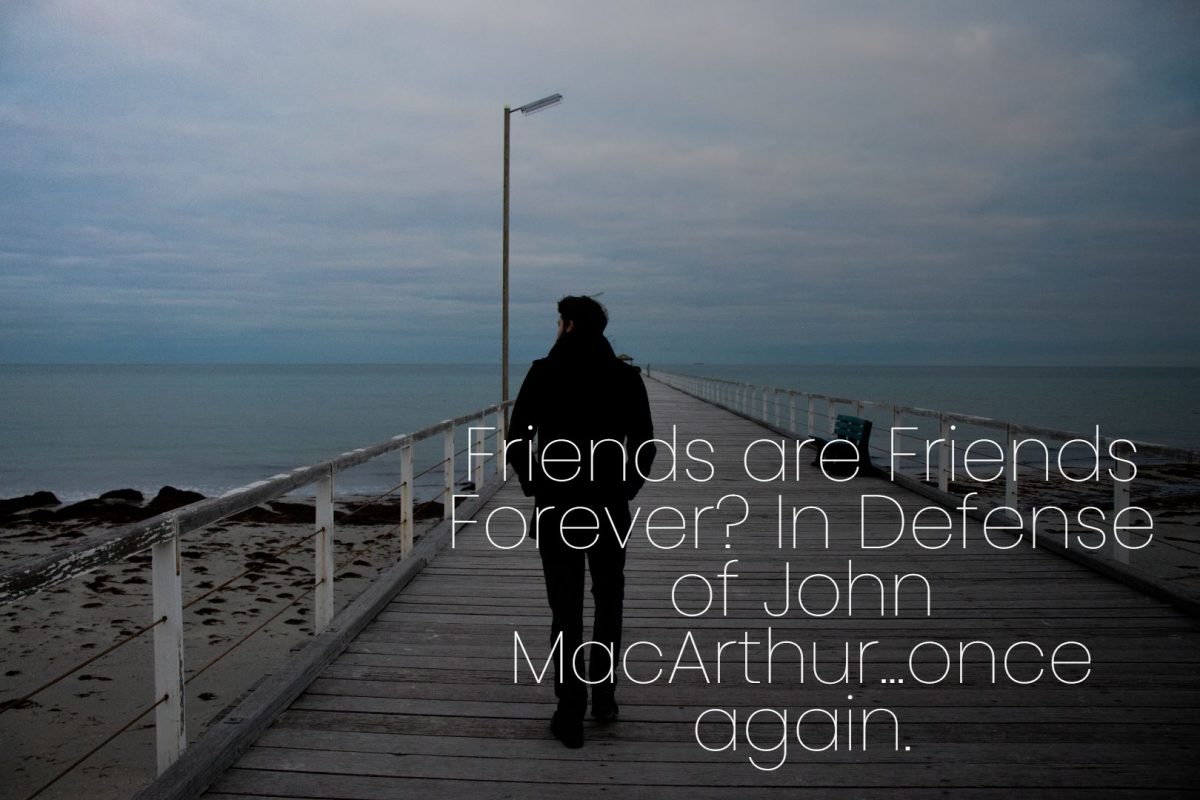I want to talk about John MacArthur again. Is it the 6th time? I don’t know, but I do want to use him as an example of a principle that saddens me. I don’t want to assume too much from something he said recently on an interview, but I do wish to hammer down the idea of loyalty in times of confusion.
Eric Metaxas was inquiring of John.MacArthur about the recent comings and goings regarding his commitment to remain open as a church regardless of what passes as law in Los Angeles County. For the octogenarian pastor, this is a pretty clear cut issue no matter how many nuances others put in their sandwich. And then he added this disheartening note:
“I’ll be very specific. The last couple days we’ve been dealing with the issue, a lot of evangelical leaders across the country I know and not one of them that’s a prominent person has contacted me to say thank you…because if you’re not everything the pragmatic evangelical movement wants to be you’re pariah…”
Think about the fact that the man who was physically present –when many of these evangelicals were nursing as infants–at the Council on Biblical Inerrancy in 1977 and who has fought for orthodoxy while many of these men were opening their first pages of Berkhoff, is now considered a pariah. Just a few years ago, the same (oh, let’s go ahead and speak freely) Dever and Leeman and Mohler and others (yes, I love these brothers but strongly oppose their vision) were praising MacArthur and driving young men in masses to his Shepherd’s Conference every year, yes, these same men have not picked up the phone or used their influential tweets or Facebook posts to defend or at least act as a friend to someone who has fought the good fight. As a side note, I was amused when a theologian whose last name rhymes with Brittlejohn asserted that MacArthur is leading his flock into danger. It was at that moment that I grasped something important: the younger generation, those not impressed by Machen’s fear of liberalism, but very much impressed by theologians in skinny jeans opining about critical theory, have little interest in preserving the warring stamina of those old stalwarts like Sproul, Gertsner, Van Til, Bahnsen, and the still living John MacArthur.
MacArthur feels isolated when he should have every major player behind him, even if they find his position a bit too much. These guys–in my way of viewing things–should say, “You know John, we love you and stand by you, though we wish you would consider this or that caveat.” But rather, what we have is sheer pragmatism; the kind that sticks to the oven after cooking loads of bacon; the kind that needs extra strength to get it off.
“Not one of them,” he said. Not one of them was willing to tell a faithful pastor living in the most outrageously pagan society in America and the most conspicuously tyrannical state in these United States said, “Hey man, we got your back!” Michael W. Smith was wrong: some friends are not friends forever. Jonny, for what it’s worth, there are a bunch of unknown pastors and theologians whose popularity don’t move the social media scale, but move small little communities to think rightly, who love you and appreciate your grandfatherly care for your flock and who stand with you in these trying times.
















[…] Commenting on this, Uri Brito writes, […]
Thank you brother for these words.
I attend GCC and to be honest I’ve been saddend to the point of weeping and enraged to the point of weeping. These male humans I once admired as my heroes (Mohler, Duncan, Dever, Ferguson?), these “stalwarts” of the faith are either silent or have the temerity to cast stones in a time such as this. I guess that adage is true after all “keep your friends close, your enemies closer and your ‘heroes’ closest of all.” (Ok so took a bit of
an editoral privilege).
Thank you pastor John for your love and courage and thank you unknown and unnamed pastors and congregations for your friendship and faithfulness.